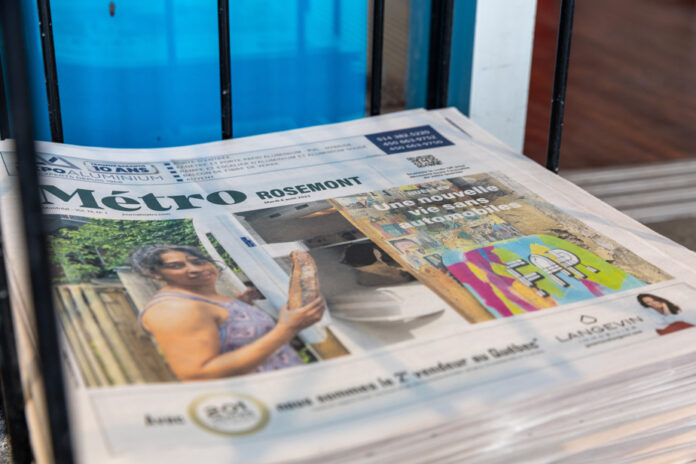In the aftermath of the suspension of the activities of the 17 publications of Métro Média, a certain number of questions persist among employees of the newsroom.
“Employees still have a few questions,” says Guillaume Ledoux, a Journal Métro reporter for nearly a year. In particular, he wonders what will happen to the upcoming pay and whether it will be paid as usual.
For the time being, the information circulating internally is hardly any better than that known to the general public. The end of the adventure “was announced to us [substantially] in the same words” as those used by Andrew Mulé, CEO of Metro Media, in the announcement relayed online, says Mr. Ledoux.
Caroline Bertrand, cultural journalist at Journal Métro, also agrees. “We don’t know if we’re going to get a next payday,” she explains. Joined by La Presse while she was in the company of colleagues, she believes that this feeling of uncertainty is shared by many.
“At the moment, we are in the dark. We’re supposed to have more practical information on Monday,” she said. But so far, employees haven’t received an “internal statement or email.” Both Mr. Ledoux and Ms. Bertrand understood, however, that they would not be returning to work next Monday, as they usually did.
“I had a full week of interviews, but I take for granted that all of that is off,” she says. She adds that many of the texts already written will probably never be published in the Journal Métro or in one of Métro Média’s 16 local weeklies. For the rest, the cultural journalist relies on her union delegates: “Our union will seek answers to the questions we are asking. »
The source of this confusion, say the journalists surveyed, is the words used by management in their communications. “The ‘suspension of activities’, we’re not too sure what that entails,” admits Caroline Bertrand.
Some, however, are under no illusions: the adventure of the Journal Métro and its local branches seems well and truly over, but it is not entirely clear whether “we are laid off or outright fired” , says Ms. Bertrand.
“We weren’t more assertive than when we spoke of the ‘suspension of activities’,” confirms Mr. Ledoux. The latter is, for the time being and until proven otherwise, the author of the latest text published online.
It was La Presse that informed him of this observation, and although he sees it as “beautiful poetry”, he is above all looking to the future. “I may find it fun to be metaphysically tied to the end of the diary…but it doesn’t affect me more than it should, I’m pretty pragmatic and still welcome the news,” he says. he.
If the company’s financial difficulties had been fueling internal discussions for some time now, the announcement made on Friday evening surprised many. “We knew it was not going very well, that the difficulties were quite poignant, but we did not know that it was going to close overnight,” articulates Mr. Ledoux. “No one expected this on a late Friday afternoon,” adds Ms. Bertrand.
Pointed out by Andrew Mulé because of his decision to complicate the distribution of Publisac, Mayor Valérie Plante reacted on Saturday through her press officer. “Local media are essential to our democracy, and if we want to protect them and avoid further closures, the necessary national discussion [is not] about the distribution model, but about the financing method. »
The City also says it is ready to contribute to the necessary reflections “with the means it has” and by considering the “issue as a whole”.
The National Federation of Culture and Communications, affiliated with the Confederation of National Trade Unions (FNCC-CSN), deplored the announcement of Metro Media on Saturday. She asked for a “coordination of political powers both in Quebec and Montreal […] in order to save local information” in the metropolis.
“We simply cannot let go of the only media that covers political, cultural and sports news in all the boroughs of the metropolis of Quebec,” said Annick Charette, president of the FNCC-CSN.















